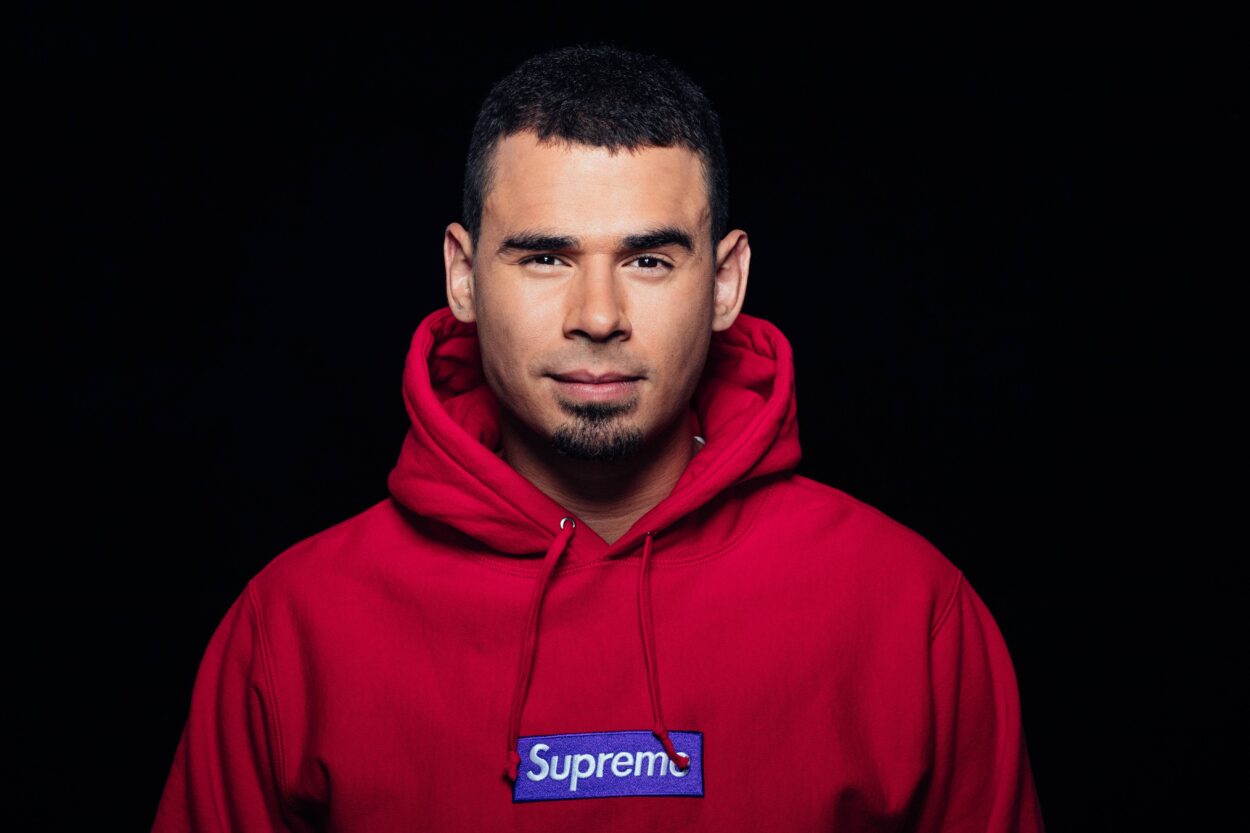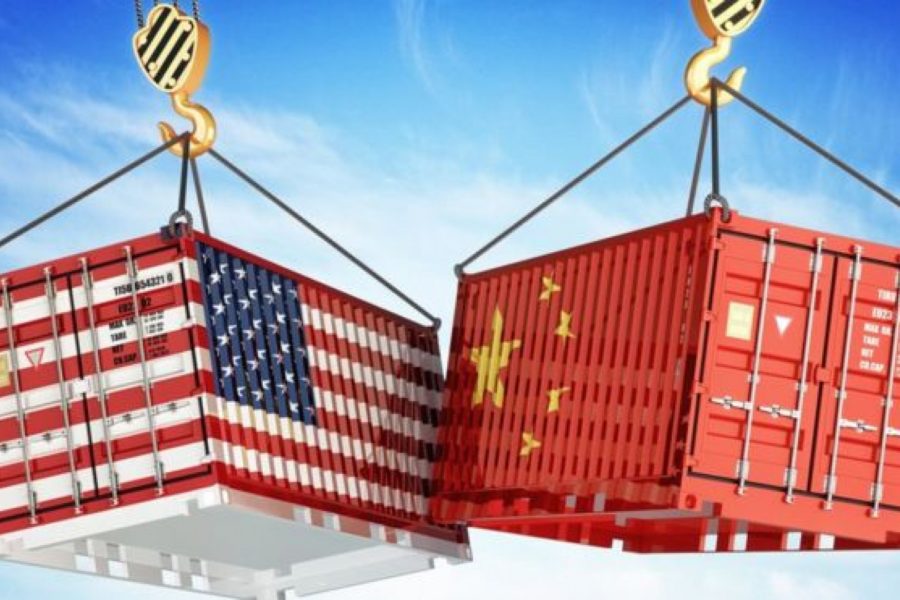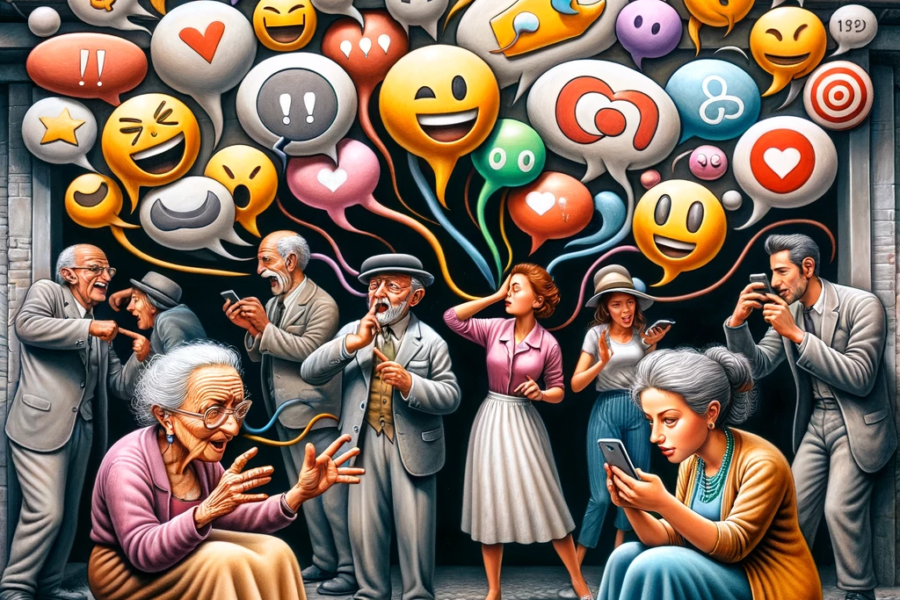For the genre’s fan, there is no doubt that Nick van der Wall, better known as Afrojack, is one of those who made the history of EDM music great, made up of festivals and big chart hits. Yet, according to his admission, the artist seems to have recently opened up to a new life, without forgetting the project that made him famous. Through the new – but old – alias Kapuchon, for whom he promises to no longer consider the dynamics of the industry, the Dutchman wants to tell about himself, establishing a personal connection with the fans, too neglected by the world of “Superstar Djs”.
So, how it’s going?
It’s Good! I’m in Dubai, enjoying normal life. It’s a good day and there’s a nice weather.
So, let’s start: I know that kapuchon means “hoodie”…I’m right? Why did you choose this unusual name?
Yes, It’s right. This is because I used to always wear a hoodie.. Always, like a sweater with a super comfortable hoodie. I don’t believe that it’s important the name…a name is just a name, so I got it.
So you like the streetwear…it might be good a collaboration with Adidas or Nike.
It will be great! Maybe one day…I’ll think about that!
Beyond clothes…why did you come back to producing as Kapuchon?
I started producing under Kapuchon about in 2007, when I started as Afrojack. I always had produced house music for fun, and then a few years ago I started producing it again for my sets, to make a little bit interesting. And then about a year ago, we said: “OK, so let’s actually launch and let’s actually give it to the people”. A lot of a lot of fans were asking about the records, but I couldn’t release it as Afrojack because it would be maybe confusing to some people. So we thought: “OK, let’s start a new label and completely focus on pure music”. So it’s just music and people. There’s no marketing budgets, there’s no investments. It’s just songs for people.
You know, I thought that the pandemic had an effect on this choice, but you just said to me that it was a year ago when you start thinking to come back…
The pandemic actually gave us the time to turn again, turn it into something and get everything ready and create it, because we decided about a year ago, but we never had the time to actually figure it out properly and plan it and do the artwork and to record the set and all this other stuff. The pandemic really gave us time and space, but not just time and space to do it, but also time and space to think.
Yeah, and I think that the pandemic also had an affection on genres, because it feels like it was “useless” to produce EDM music instead of more listenable music…
Of course, like the high energy music is used for a high energy offense. So I didn’t make any EDM for the last six months because I can’t envision where I’m going to play it. So the way that everything opens again, I will definitely be making that music too. But right now, I also really like that I have the time to creatively explore all these other areas. It’s me, but it just never really had the time to come out. So now, is that what I do.
I think that was, generally speaking, a little bit of suffering in the EDM world, maybe a loss of energy, a lot of new songs. And I think that is a great choice to remake the project Kapuchon.
I honestly think that you’re right about that. I think that in EDM music was a little bit lost, looking for a new sound, looking for a new wave and new hype. And even though it definitely broke our industry because we, like our industry, shrank by like 90 percent or something, I honestly still feel it’s like, of course, that the pandemic itself, but the result of the pandemic and not being able to have any event. Yeah, it’s something that will, I say, rejuvenate the industry. When we come back, we’re going to come back harder than ever before. I think we really know how much we love it and how much we miss it. So, we’re going to pay more respect to it.
I think that is a great way to show that you have also to give beyond EDM and I think you are great in it. And I really like your last single as Kapuchon…I’m really curious to know how it was born.
I made the song I think about two years ago already, or a year and a half ago. But I was never happy with the mix and I used it to play it in a lot of shows through the winter, expecially in Val Thorens. They’re a lot more house music based than EDM based because it’s a more adult crowd and you’re on the mountain, so you’ll dance whatever. It’s cold, you just want to dance. So that really always gave me the space to experiment as a deejay. I made the track to play it there, initially. I could have also called the track “Val Thorens”, but we call it “10 years later” because it’s ten years after the last time I release a song as Kapuchon. And I think it really embodies just dance music, from my perspective. It’s like it’s just music, you know, no marketing, no crazy vocals, no “la la la la la”. No, I just want to see you make the dirty face. Yeah. That “oooh”, that’s the only thing.
Yeah, I really agree with you. And it was you nervous when you played for the first time the new record? Were you worried about public reaction?
No, it worked. The record worked. And I’m surprised about the amount of support we’ve gotten from the release. So, it’s very nice to see that people are excited about it and they’re happy about it. But I think the most important thing is that we did it naturally and we didn’t use the industry thing, so it shows that you can still get great results even without doing the whole industry “mumbo jumbo”. It also is bringing me closer to people like you and me are talking, now. This used to go through a publicist, through a label, and there would be a set time and there would be a set question list about,….I understand it, makes it easy for the companies, but it changes our relationships. It changes my vision of you as an interviewer and it changes your vision of me as an artist because we’re just numbers on a screen. And that’s why I’m very involved from the label side, but also from the relationship side…we still do our promo mailouts, but everyone that supports us, we want to have direct relationship. We appreciate it if you support us from the problem mailout, but we ready to talk about it. We want to know what you actually think of the record, like getting the positive feedback on an email from twenty seven different people. It’s like, that’s nice, but you don’t know the people. We all love the same thing. So why would we have this little conversation? Why wouldn’t we have this interview face to face? Why wouldn’t we have a phone call? And that’s how I feel about my career started back in the day when I was 17. And that’s how I want to build Kapuchon. And that’s exactly how I want to build new artists. Because when I have a new artist that has a new song and I think you might like it, I rather send you a WhatsApp message than a promo mail, because honestly, are you going to feel appreciated if you get some mailouts? “I like the song”, “click yes”, “thumb up”, “bye”…and that’s I think that’s how our industry blew up, but at the same time diluded. We all lost our connection. And that’s why I’m happy that we’re having this break. We can really reassess the situation and re-establish a personal connection.
So, I think the important thing is to have fun and I notice that you have a lot of fun when you’re playing. I saw that you made a live streaming to present the single and you choose Rotterdam, is it an important city for you?
Yes. I grew up in a suburb of Rotterdam, but I discovered dance music in Rotterdam, and I discovered nightlife in Rotterdam. The first night clubs I went to where there, the first house music night clubs, the house music parties, all in Rotterdam. That’s where it all started. So, for me, going back to my roots it’s in Rotterdam.
I noticed that you choose an industrial area. Why did you choose it?
Because most suburbs, all the people that live in the spike in this are basically descended from harbor workers. So we have a very big harbor in Rotterdam, the port of Rotterdam, which is a very big import and export point for all of Europe. So, there’s tens of thousands, hundreds of thousands of people, gigantic families that all dissent from working there. So for me, when I was driving out to go to Rotterdam, I would always drive by the harbor. You would always see the harbor. For some people, it looks very underground or weird. For me, it’s like that’s how I grew up. Like from my window, from the house I grew up in. From the window, you could see the containers of stuff.
I think it’s a really cute.
Yeah. It’s fun for me. That’s where I’m from. That’s really important.
I really like your approach to your childhood. And so I think it’s good for an artist to put himself in the music and it’s not so easy to find it in a big producer. I want you to make a comparison between new Kapuchon and ten years old Kapuchon. What were the influences in both?
It’s exactly the same. Back when all this happened. That’s also what happened in the 10 year gap. There was it’s exactly the same inspirations. The record books playlists are the same records I played back in 2007/2008. And some of the records that I’m playing in the set are like 10 years old or 15 years old. And I think the main thing is that you as a person never change, but what you’re doing could change. So, we kept show in 2009/2010: I was doing exactly the same thing as I’m doing now. The only thing that happens, Afrojack blew up and I started going to Las Vegas and strip clubs and parties in America all over the world, private jets,…It was all fun. It’s amazing. I still enjoy it very much, don’t get me wrong, but Kapuchon didn’t change. And now, in the last two years, I became very calm as a person and a lot more, I say, conscious of what some of my surroundings. I almost never drink anymore. And that really gave me the insight to have that opportunity to continue as Kapuchon. So even though it’s 10 years later, it’s not a Kapuchon, it’s a continuation of exactly the same thing we’re picking up where we left off. I started it, but I never pushed it through. So now we just continue where we started.
How do you combine your tech-house soul and the EDM one?
It came organically, It’s inside me. My brain does it for me. I don’t really think about it.
I think you miss to play in front of the crowd…
Of course I missed to play, but I’m not really using this time to produce because there’s not so much inspiration, because there’s no direct trade with the people, like when you’re playing in a club and the people are in your face so you can see each other’s facial expression. When you’re not with people, it’s very difficult to get inspired. So, I’m working on some music, but more listening music. But I’m really taking this time to reassess our company and reestablish where we are going and what direction we’re moving in.
And you missed Kapuchon too, I think.
I think it’s very nice, but not just nice for me. I also think it’s nice for my team to finally working on the underground level. It’s refreshing.
I know also that from the “old Kapuchon” there are a lot of unreleased…you think that you will publish some of them?
We’re going to release everything.
Really?
Yes. Even the less commercial things, even the ideas. The reason I called the label Kapuchon Records and we’ve made social media for the label, but not for the artist, is because I want to focus all my attention with Kapuchon on the idea of Kapuchon, which is human human relationships and music. Nothing more. No marketing, no industry, just fun music and people. I don’t want to have to be worried about the charts. I’m never going to be worried about the charts of Kapuchon because it’s not about the charts. It’s about the few people that do like the one thing that we put out.
I agree with you, because sometimes some artists focus only on the charts and I think that public understand it and don’t like it. So in a few years you can destroy yourself.
I have a very great team that keeps the balance between charts and personal hobby, but when you work with external partners…you know, we work with distributors, we work with labels, and they can only pay their staff if they make money from the music. So they’re not thinking about you as artists or you as a person, they’re thinking about a song that makes lots of money or a song that makes it big in the charts. But me producing a song that’s not my style but it’s big in the charts, is going to maybe work in the charts, but it’s not going to make my fans appreciate me more as an artist. So I really learned that over the last two years also to really be you as an artist, that you’re going to get more successful as an artist versus trying to focus on chart success. It’s interesting because there are some deejays that have insane chart success, but they’re not getting booked. And that’s because people want people, people don’t want success. People don’t buy tickets for success. They buy a ticket to have an experience and to be part of an idea. That’s what Kapuchon should be a constant reminder of it, not just to me, but to my team, to my fans and to everyone I work with.
Can we expect some collaboration in the future?
There will be lots of collaborations…from some different perspective.
Maybe with Nicky? I know that you like to work together…
Maybe! I think the most important thing I see about Nicky this year compared to the last few years is that this year he also turned it around. He was also like in the industry doing the industry thing. And last year, he really made a big deal with Protocol Radio. He really took everything personal. He put lots of his personal time into creating the gaming thing, into creating relationships with the fans, communication, all this stuff. Nicky, actually is an inspiration for me to see. I think bigger DJs and producers should be handling their relationships, not just teachers and producers, but promoters, event organizers, venue owners, because it really brings the people together. And when see how close the people are together, we can do insane things.
And what can we expect from next months?
Next month there’s no release, which from January we’re planning to release a song every five weeks.
Wow! A lot of songs.
Yeah, a lot of songs. But again, it’s nice because we’re not focused, so we’re just trying to create cool music and to slowly create a community of people that like the same music. That’s the big change. It used to be about getting in the top ten Beatport chart and now it’s about getting a direct connection with maybe it’s not going to be a thousand people. Maybe it’s going to be three people. I want to have a connection with those three people. I rather have three people with a connection than ten thousand people. And I have no clue what the fuck’s going on.
Thank you so much for this interview, can’t wait to listen to your music as soon as possible.
Taken from soundwall.it



